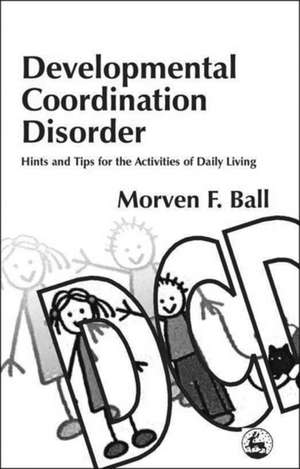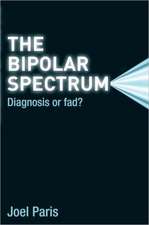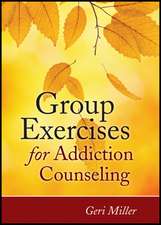Developmental Coordination Dis: Selected Papers
Autor Morven F. Ballen Limba Engleză Paperback – 14 mar 2002
Preț: 99.16 lei
Preț vechi: 128.14 lei
-23% Nou
Puncte Express: 149
Preț estimativ în valută:
18.98€ • 20.62$ • 15.95£
18.98€ • 20.62$ • 15.95£
Carte disponibilă
Livrare economică 31 martie-14 aprilie
Preluare comenzi: 021 569.72.76
Specificații
ISBN-13: 9781843100904
ISBN-10: 1843100908
Pagini: 96
Ilustrații: bibliography, index
Dimensiuni: 140 x 216 x 5 mm
Greutate: 0.13 kg
Editura: Routledge
Locul publicării:United Kingdom
ISBN-10: 1843100908
Pagini: 96
Ilustrații: bibliography, index
Dimensiuni: 140 x 216 x 5 mm
Greutate: 0.13 kg
Editura: Routledge
Locul publicării:United Kingdom
Notă biografică
Morven F. Ball worked in the paediatric field as an occupational therapist for over ten years and had a particular interest in the field of DCD. Now a full-time mother to her three children, she continues to support and educate those with DCD through the Highland Developmental Coordination Disorder Group, a charitable organisation providing information, support and group activities for its members and their families.
Cuprins
1. Introduction. 2. Developmental Coordination Disorder explained. 3. Posture. 4. Writing. 5. Scissor skills. 6. Reading. 7. Feeding. 8. Personal care. 9. Dressing. 10. Attention. 11. Organisation. 12. Learning new or difficult tasks. 13. When behaviour is a problem. 14. Activity suggestions for developing motor skills. 15. Final note. 16. Helpful addresses. 17. Bibliography. 18. Acknowledgements. Index










